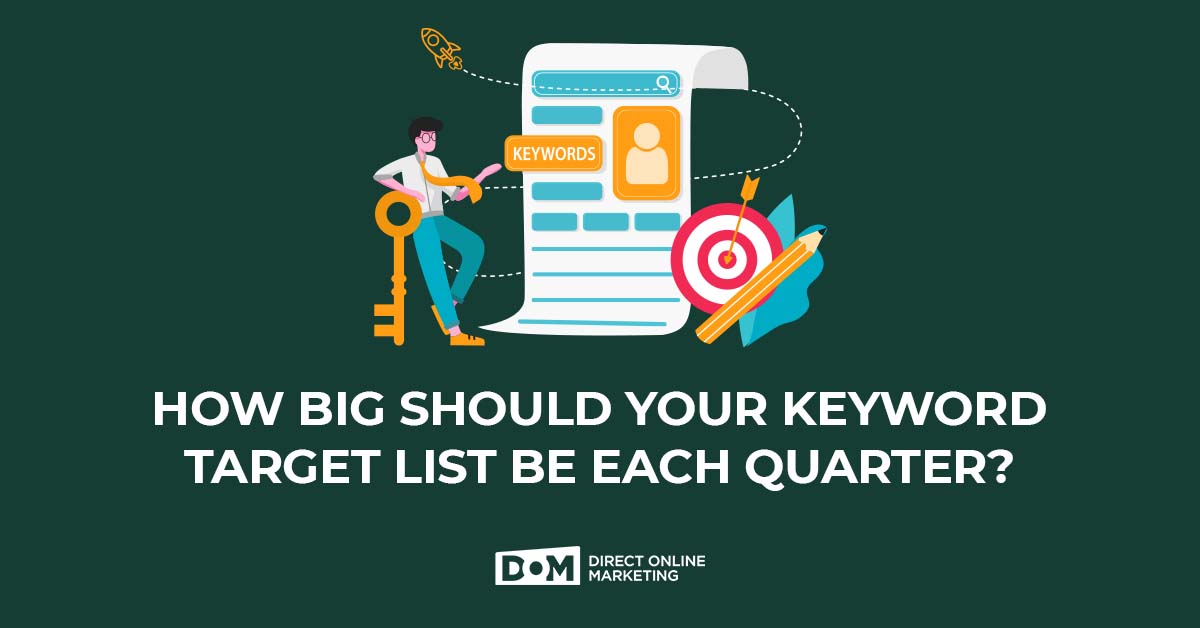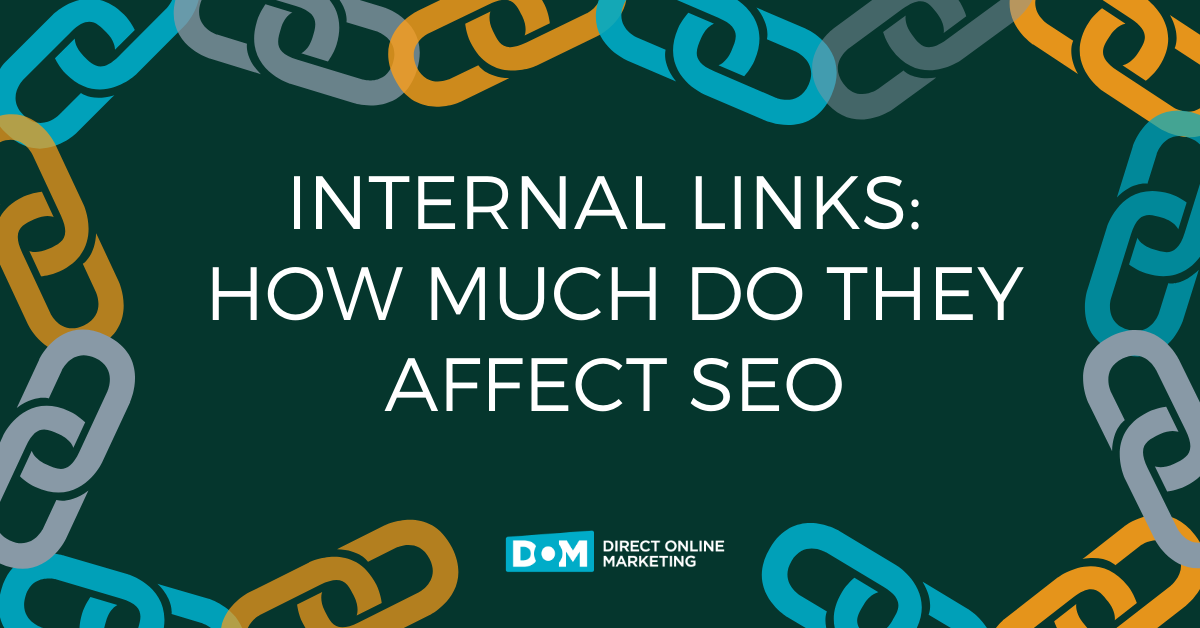
When it comes to keyword targeting for SEO, there are a lot of factors to consider. How big should your keyword target list be each quarter? What types of keywords should you focus on? And how do you determine which keywords are the best for your business?
Don’t worry, we’re going to do our best to answer those questions for you. So whether you’re just starting out with SEO or you’re looking to refine your current strategy, read on for some valuable tips.
First, What is a Keyword Target List? How Do You Build It?
If you’ve worked with SEO people before, you’ve probably heard them reference the keyword target list fairly often. That’s because targeting keywords is, well, the key to SEO.
When you target the right keywords, your content has a better chance of ranking in search engines and getting seen by potential customers. But how do you determine which keywords are right for your business? And how do you make sure you’re targeting the right ones each quarter?
There are a few factors to consider when determining which keywords to target. First, think about what type of keyword would be most beneficial for your business. There are three main types of keywords:
- Commercial: These are keywords that get used when somebody knows what they want, but they’re looking to investigate companies or brands that offer those products or services. For example, “business cybersecurity tools” or “accounting software.”
- Transactional: These are keywords that indicate someone is ready to buy and they’re pretty much already aware of where they’re going to buy from. For instance, “affordable office chairs” or “create an online store”
- Navigational: These are keyword phrases that people use when they already know what they want and they’re looking for a specific brand or business. For example, “Comcast business account login” or “Restream support.”
- Informational: These are keyword phrases that people use when they’re looking for information about a topic. For example, “How to find the right recruiting agency” or “What is SEO?”
Second, consider your goals for the quarter. What do you want to achieve with your SEO efforts? Are you looking to increase traffic to your website? Or are you hoping to generate more leads? Once you know what your goals are, you can start brainstorming keyword ideas that will help you achieve them.
Third, take a look at your competition. What keywords are they targeting? What type of content are they ranking for? You can use tools like Google AdWords Keyword Planner and Semrush to research your competition and get keyword ideas.
Finally, make sure you’re considering the search intent of the keyword. In other words, what do people want when they type that keyword into a search engine? Are they looking to buy something? Or are they just looking for information? You can use keyword research tools to help you determine the search intent of a keyword.
The Best Keyword List Length For a Quarter
Now that you know how to build a keyword target list, you’re probably still wondering how many keywords you should be targeting each quarter. And the answer is: it depends.
It really depends on your business goals, your competition, and the search intent of the keyword. If you’re just starting out with SEO, we recommend targeting between 50-100 keywords per quarter. As you get more experience and start to see results, you can increase that number.
Of course, you probably won’t get anywhere trying to prioritize all of those keywords over the course of a 3-month quarter. Instead, you’ll want to narrow down your list to some priority keywords to focus on a few to really target and go after while still monitoring the other words on your list.
So, if you are targeting 50-100 terms per quarter to make progress against, it’s probably best to place a top priority on 25% or less of that group. Those top priority terms should be given the majority of your effort, and ideally also support rankings growth for the 75% you are targeting without priority.
Unlike PPC, targeting keywords in SEO doesn’t cost money. That is, you’re not paying to post content that optimizes for your targets.
But regardless of how many keywords you’re targeting each quarter, it’s important to focus on quality over quantity. Make sure you’re choosing keyword phrases that are relevant to your business and have a high search volume. And don’t forget to consider the competition! If there are already a lot of businesses ranking for a keyword, it’s going to be harder for you to break into the top spot.
How to Prioritize Long-Tail Keywords in Your List
One way to increase your chances of ranking for a keyword is to focus on long-tail keywords.
Long-tail keywords are keyword phrases that are more specific and usually have a lower search volume than short-tail keywords. For example, “durable padded office chairs” is a long-tail keyword, while “office chairs” is a short-tail keyword.
Long-tail keywords tend to be less competitive because they’re more specific. And since they’re more specific, they usually indicate that the person searching for that keyword is further along in the buying cycle. That means if you can rank for long-tail keywords, you’re more likely to generate leads and sales from your SEO efforts.
The goals of your campaign will determine whether or not you should place a higher priority on long tail keywords. While far from an exact science:
- Long tail keywords should be prioritized higher in your keyword target list if your SEO goals are tied to sales leads or transactions.
- Short tail keywords should be prioritized higher if your SEO goals are tied to brand awareness, visibility and thought leadership.
Avoid Keyword Cannibalization
One final word of advice: avoid keyword cannibalization. This is when you have multiple pages on your website that are targeting the same keyword.
For example, let’s say you have a page on your website that’s ranking for the keyword “affordable HR services.” But then you create a new page and accidentally use the keyword “affordable HR services” throughout that page as well. Now you’ve got two pages that are trying to rank for “affordable HR services,” whether that was your intent or not.
Keyword cannibalization can hurt your SEO efforts because it confuses search engines and makes it difficult for them to determine which page is most relevant for that keyword. As a result, both pages may end up ranking lower in search engine results pages (SERPs).
To avoid keyword cannibalization, make sure you’re using unique keywords on each page of your website. And if you do have multiple pages that are targeting the same keyword, make sure each page is offering something different. For example, one page could be a product page and the other could be a blog post about that product.
When determining the length of your keyword target list in any given quarter, keep cannibalization in mind. You want enough targets on your list to create unique targeted content that won’t compete with your website’s other pages.
Need Help Building Better Targeted Keyword Lists?
At DOM, keyword targeting is one of our specialties. We’re experts when it comes to finding the best keywords to go after and strategizing when and how to go after them.
By putting your SEO strategy into our experienced team’s capable hands, you’ll never have to worry about things like keyword list length or cannibalization. You can sit back and watch your business move up in the rankings.
If you or your business are looking for help in SEO strategy, contact us today for a free audit and find out how we can help you hit page one.


